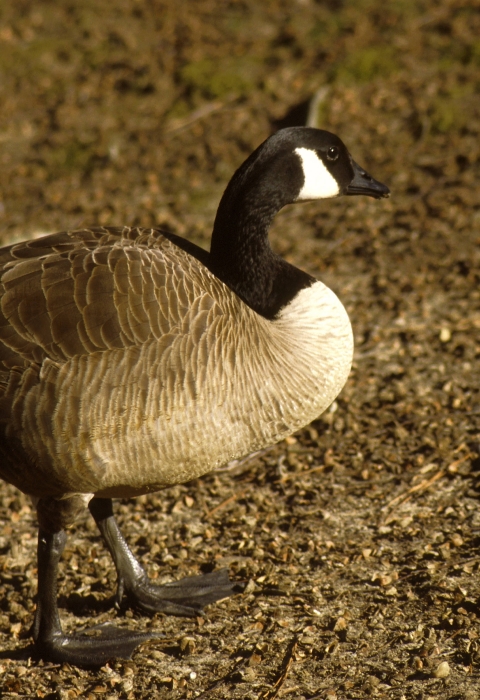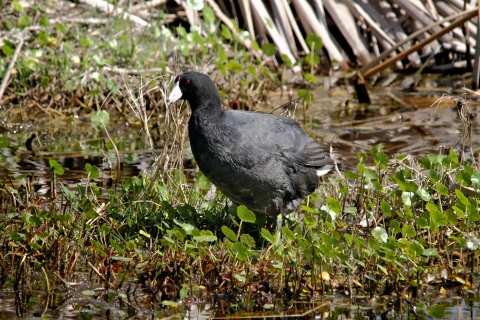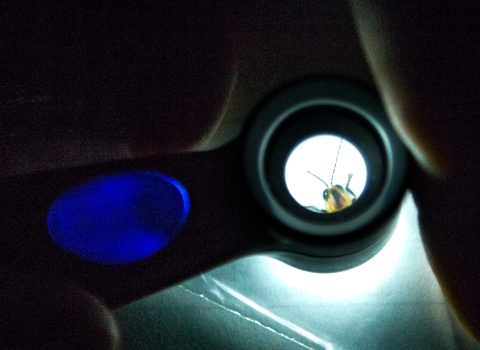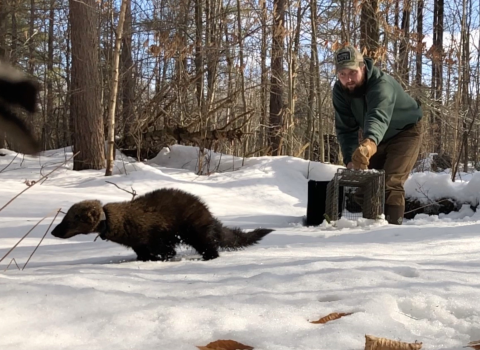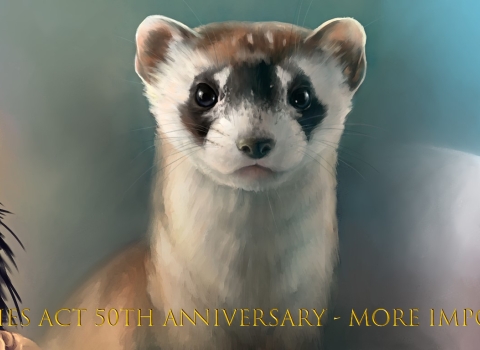Some species of waterfowl (ducks, geese, and swans), are very adaptable, equally at home in rural and urban environments, on a pond in a city park, or in the wilderness. Adult waterfowl have an omnivorous diet and in their search for food, especially in larger numbers, are known to spoil lawns, sports fields, crops, golf courses, etc., from their feeding, trampling, and fouling. The damage inflicted by waterfowl can create an economic hardship and even human health hazards.
If you are experiencing an American coot, Canada goose, or other abundant waterfowl problem, starting a harassment program as soon as the first waterfowl appears is strongly encouraged. Hazing birds immediately upon arrival will help discourage birds from becoming accustomed to a site. Most waterfowl can be harassed without a permit any time except during the breeding season. You may wish to consider:
• Implementing a “no feeding policy” to avoid attracting additional waterfowl to your property
• Hiring a falconer
• Chasing the waterfowl with vehicles or on foot
• Patrolling with dogs and use decoys
• Landscaping for non-waterfowl wildlife (e.g., xeriscape or non-wetland habitat)
• Completely surrounding ponds with sturdy fencing tight enough to prevent birds from walking to and from water features and turf
• Installing a tight grid of wires over any open water to make it difficult for birds to access
• Contacting a skilled birder or biological consultant to monthly monitor your waterfowl problem and evaluate the effectiveness of your program
Some areas with serious waterfowl problems may warrant a depredation permit. For some waterfowl species, this should be considered as a last resort. If you have effectively landscaped for wildlife, started your harassment when the first waterfowl arrived, and tried a variety of harassment and hazing techniques, you may be eligible for a depredation permit.
It is important to know that all waterfowl are protected under the Migratory Bird Treaty Act (MBTA). This law says: “No person may take (kill), possess, import, export, transport, sell, purchase, barter, or offer for sale, any migratory bird, or the parts, nests, or eggs of such bird except as may be permitted under the terms of a valid permit…”
If you are experiencing a Canada goose nesting problem, visit the Resident Canada Goose Nest and Egg Registration site at https://epermits.fws.gov/eRCGR/geSI.aspx. You may register at this site for federal authorization to destroy resident Canada goose nests and eggs on property under your jurisdiction. Some states do not participate in this program or have additional or stricter requirements. You must review the list of State Agency Contacts and Information link provided at the site prior to proceeding with registration.
